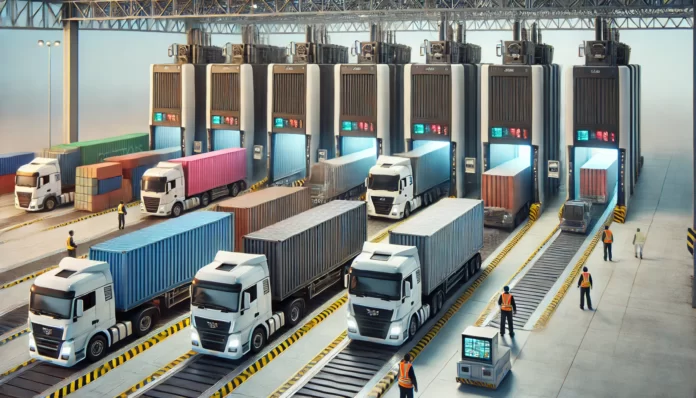The government has decided to establish a centralised customs assessment center in Islamabad to process Goods Declarations (GDs) from across the country. This move is part of the government’s efforts to strengthen the Faceless Customs Assessment (FCA) system and replace the current assessment unit in Karachi, according to media reports.
Shakeel Shah, Member Customs Operations, unveiled the plan during a press briefing on Monday, attended by Federal Board of Revenue (FBR) Chairman Rashid Mahmood Langrial and senior customs officials.
Shah emphasized that the new center would reduce corruption and ensure fair treatment for genuine importers, in line with the government’s objective to enhance the effectiveness of the FCA.
The initiative follows recent internal audit leaks suggesting that revenue collection had dropped by Rs53 billion to Rs100 billion after the FCA system was introduced.
However, FBR leadership rejected these findings, calling them flawed. Shah reaffirmed the government’s commitment to expanding the FCA and tackling corrupt networks within the customs department. “We will not roll back the system,” he stated, adding that future efforts would focus on tightening the framework.
The leaked audit reports have caused considerable controversy, with some alleging that certain officers, affected by departmental promotions and changes, spread misinformation. To address the issue, FBR has set up an inquiry committee to investigate the leaks and take disciplinary action against those responsible for premature disclosure.
Imran Khan Mohmand, Director General of Reforms and Automation (Customs), revealed that the new Islamabad center would be staffed primarily by fresh graduates hired on a three-year contract, with performance reviews to ensure only the most capable are retained. Existing appraisers in Karachi will be reassigned due to staff shortages.
Despite the controversies, Khan presented data showing that the revenue collected per GD at Karachi port and dry ports has increased over the past seven months, countering the claims in the audit reports. He highlighted that customs oversight had improved, with more irregularities identified and corrected since the FCA was implemented.
FBR Chairman Rashid Mahmood Langrial acknowledged that the FCA system was not expected to produce an immediate revenue boost but noted that the data indicated noticeable improvements. “The main beneficiary of the system is the genuine business community, while those involved in corrupt practices are losing out,” he said.
Langrial also addressed concerns over increased customs clearance times, clarifying that any delays were mainly due to external factors like port congestion and procedural bottlenecks, rather than the FCA itself. He assured that strict action would be taken against corrupt officers and emphasized that only honest personnel would be appointed to key positions.




